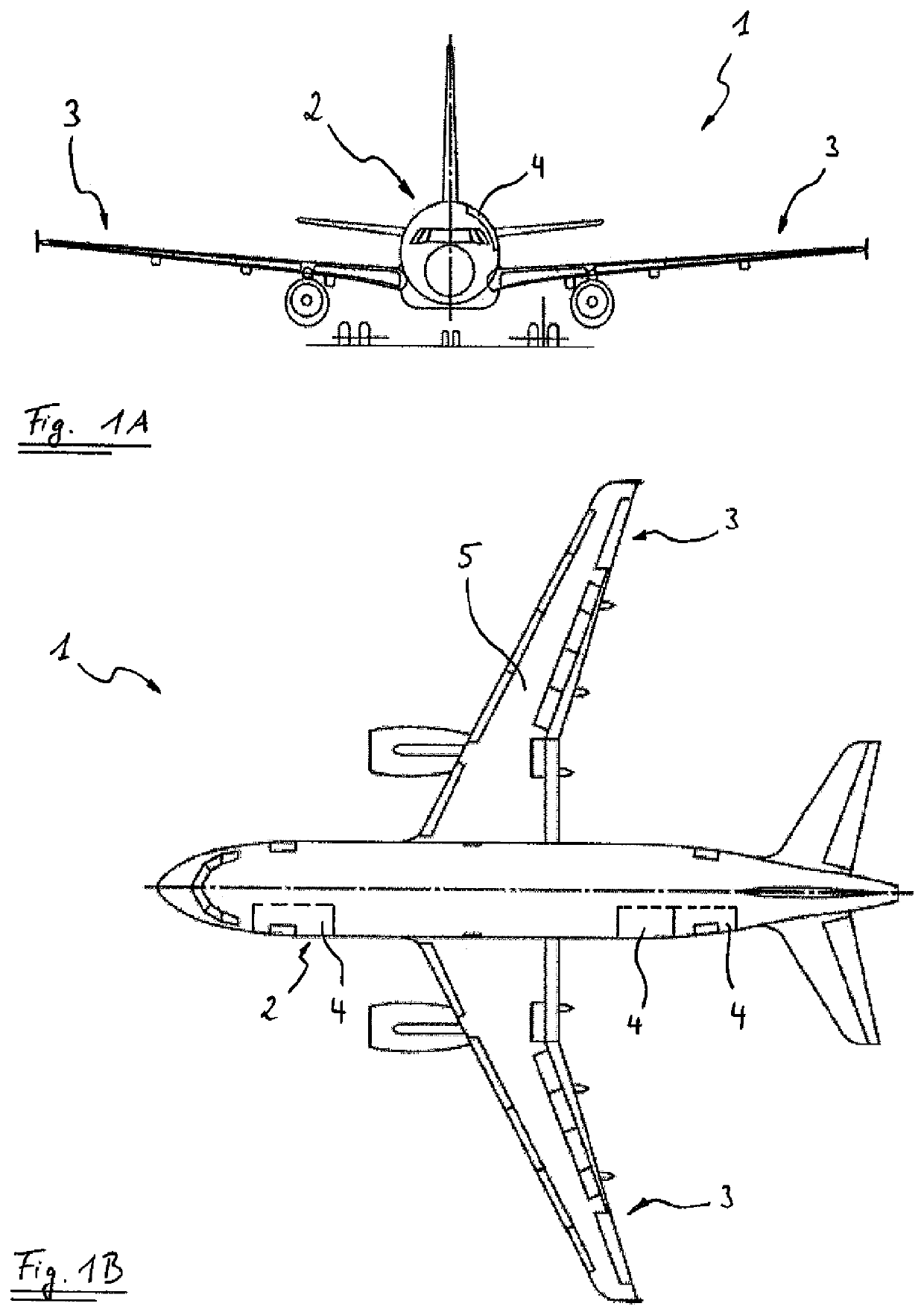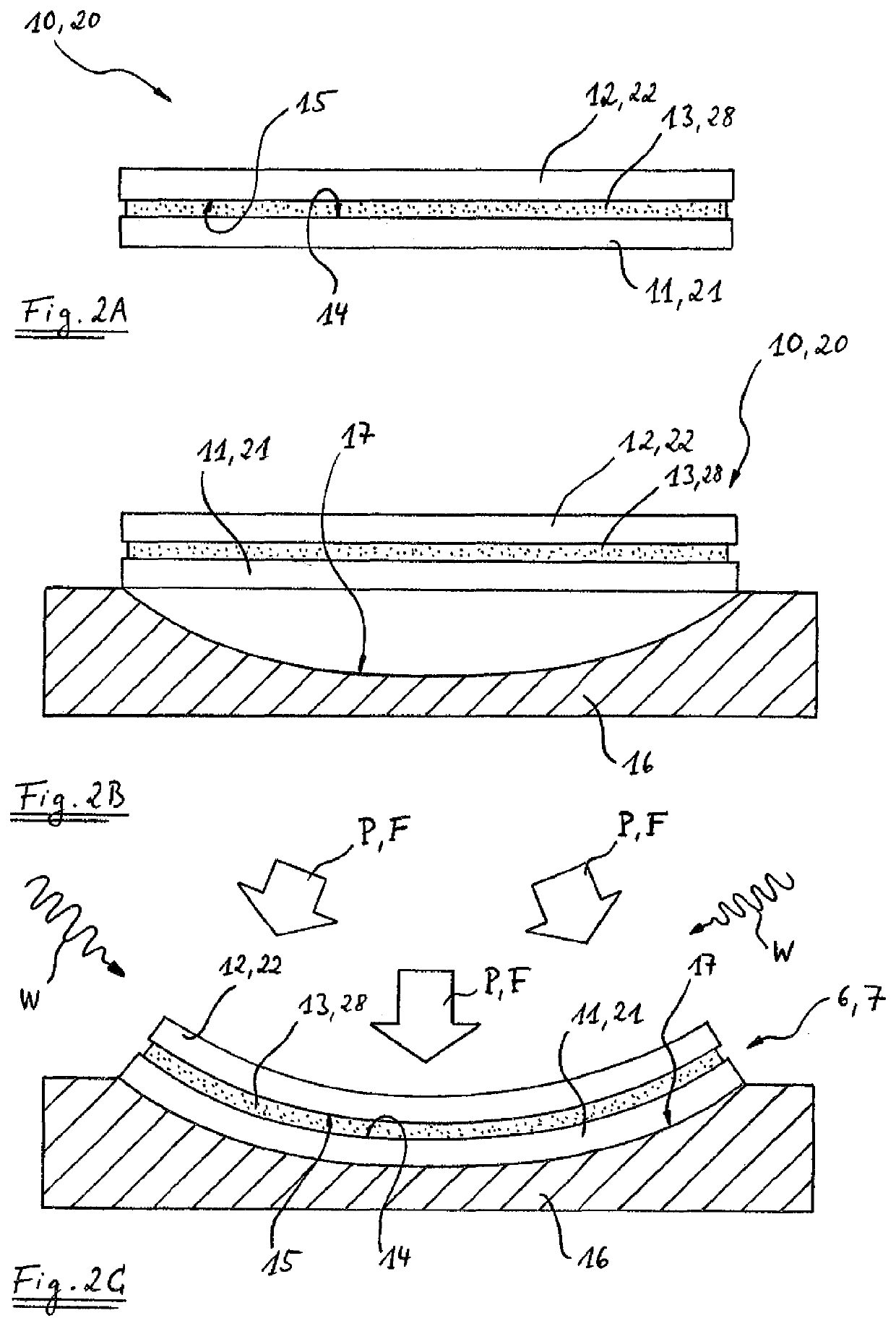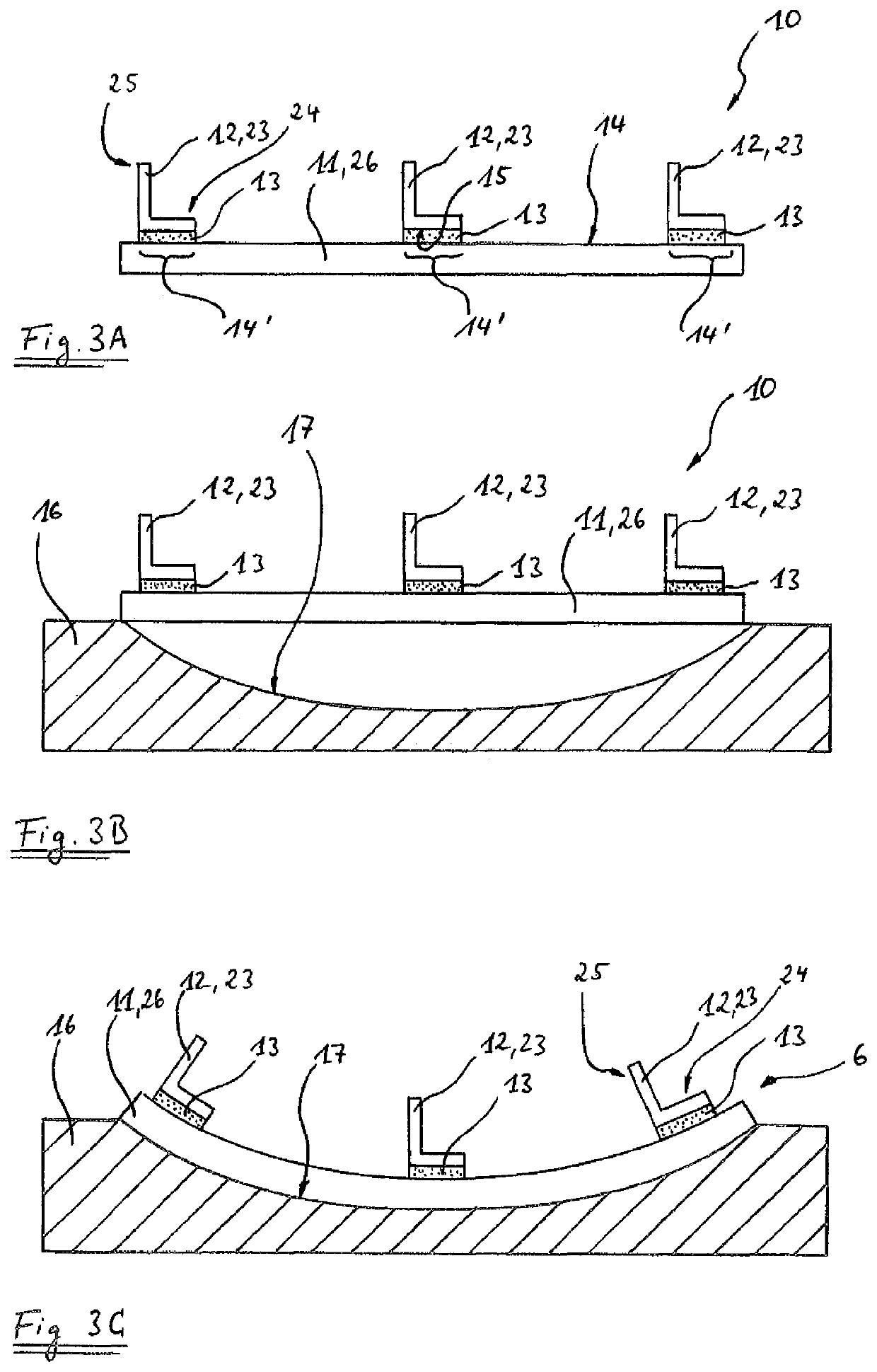Method for producing a structural component
a manufacturing method and structural technology, applied in the direction of transportation and packaging, chemistry apparatus and processes, other domestic articles, etc., can solve the problems of high cost, time-consuming and cost-intensive manufacturing of multiple curved shell assemblies, and a very circuitous manufacturing process
- Summary
- Abstract
- Description
- Claims
- Application Information
AI Technical Summary
Benefits of technology
Problems solved by technology
Method used
Image
Examples
first embodiment
[0111]FIGS. 2A to 2C show the manufacture of a structural assembly 6 and a semi-finished product 7 in accordance with the invention. The structural assembly 6 may be a wing shell 5 or a fuselage shell 4 of the aircraft 1, but may also be any other structural assembly from the field of air or space travel or else from other technical fields, for example motor vehicle or construction technology.
[0112]FIG. 2A shows an arrangement 10 which is formed by arranging a second assembly component 12 on a first assembly component 11. A sheet 28 of a thermoplastic plastics material 13 is provided between the two assembly components 11 and 12. In FIG. 2A, the sheet 28 of the thermoplastic plastics material 13 is not yet connected to the two assembly components 11 and 12, but can, as shown in FIG. 4, be laid between the first assembly component 11 and the second assembly component 12 in the form of a film or foil so as to form the arrangement 10. Alternatively, the thermoplastic plastics material ...
second embodiment
[0121]FIG. 6 shows two options for preparing the thermoplastic plastics material 13 for manufacturing the structural assembly 6 in accordance with the second embodiment, either as a film or foil, which is laid between the first limb 24 and the shell skin 26, or as a coating of a lower surface 15 of the first limb 24 of the stringer 23, for example by thermally spraying the thermoplastic plastics material 13 onto the lower surface 15 of the stringer foot. As is sketched in FIG. 6A, in addition or as an alternative to the lower surface 15 of the first limb 24 of the stringer 23, a surface portion 14′ of the upper surface 14 of the shell skin 26 may also be coated with the thermoplastic plastics material 13. So as to ensure good adhesion of the thermoplastic plastics material 13 to the first and second assembly components 11 and 12 in this case too, in FIGS. 6 and 6A to the shell skin 26 and the stringer 23, the upper surface 14 or at least the surface portions 14′ of the upper surface...
fifth embodiment
[0126]In accordance with the invention, as illustrated in
[0127]FIGS. 9A to 9C, before forming an arrangement 10, initially one or more third assembly components 31 may be connected to a first assembly component 11, other than by means of a thermoplastic plastics material. The first assembly component 11 of FIG. 9A is in the form of a substantially planar sheet of an AlMgSc alloy, the thickness of the sheet being for example between 0.8 mm and 6.0 mm , preferably 0.8 mm to 3.8 mm, more preferably 0.8 mm to 2.0 mm. In the finished structural assembly 6, the first assembly component 11 forms a shell skin 26. FIG. 9A only shows a third assembly component 31, which in this example is in the form of a stringer, the longitudinal direction of which extends substantially parallel to the plane of the drawing. The stringer serves to reinforce the shell skin 26 in the structural assembly 6, and is already welded to the first assembly component 11 in FIG. 9A. The welding may for example take pla...
PUM
| Property | Measurement | Unit |
|---|---|---|
| temperature | aaaaa | aaaaa |
| thickness | aaaaa | aaaaa |
| temperatures | aaaaa | aaaaa |
Abstract
Description
Claims
Application Information
 Login to view more
Login to view more - R&D Engineer
- R&D Manager
- IP Professional
- Industry Leading Data Capabilities
- Powerful AI technology
- Patent DNA Extraction
Browse by: Latest US Patents, China's latest patents, Technical Efficacy Thesaurus, Application Domain, Technology Topic.
© 2024 PatSnap. All rights reserved.Legal|Privacy policy|Modern Slavery Act Transparency Statement|Sitemap



